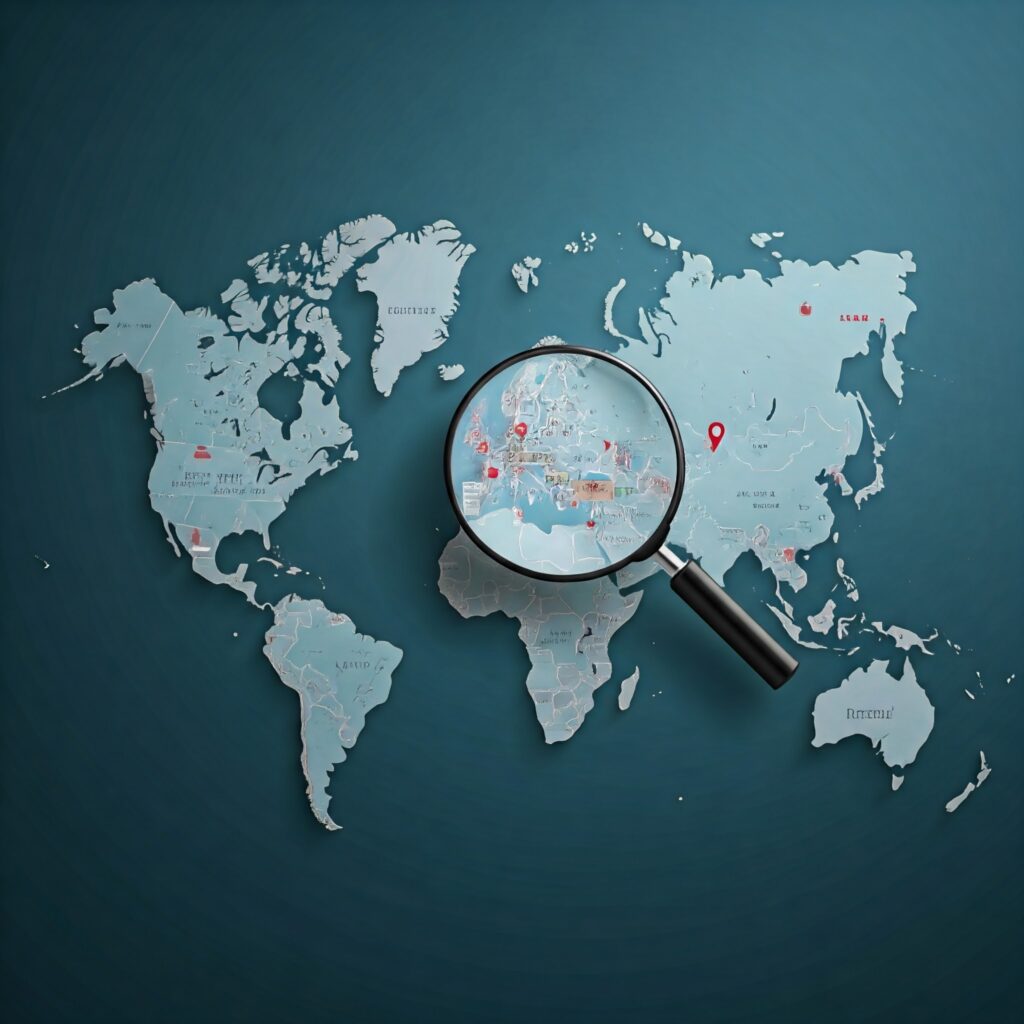
Hey fellow translators! In today’s interconnected world, businesses are increasingly expanding their reach beyond borders. And guess what? That means a surge in demand for our skills! Website localization is a goldmine of opportunity for us.
Think about it: billions of people use the internet, and most don’t speak English. If a business wants to connect with these global audiences, they need to adapt their websites to different languages and cultures.
This isn’t just about translating words; it’s about creating a seamless, culturally appropriate experience for users worldwide.
This guide will explore the exciting world of website localization, why it’s crucial for businesses, and how you, as a skilled translator, can capitalize on this growing market. Let’s dive in!
Why Website Localization Is Booming (And Why This Matters to You)
In today’s digital world, businesses are expanding beyond borders, and the demand for website localization is skyrocketing. Think about it—most internet users don’t speak English, yet companies need to connect with them. That’s where you come in.
Localization isn’t just about translation; it’s about creating a seamless, culturally adapted experience that makes users feel at home. By positioning yourself as a website localization expert, you can tap into a growing market that values high-quality human translation over machine-generated content.
Why Businesses Invest in Localization (Your Key to Selling Your Services)
If you understand why businesses spend money on website localization, you’ll be better at selling your services. When pitching to clients, highlight how you can help them achieve these goals through expert localization. Here’s what drives companies to invest:
- Building Trust: A website in someone’s native language shows that the business cares about them and respects their culture. This builds trust and makes people more likely to buy from them. This is important for you because clients who care about their image are more likely to hire professional translators.
- Expanding Market Reach: More languages mean more potential customers, leading to higher sales. When a website is in a customer’s own language, it’s much easier for them to find the business and buy their products or services. This means more potential customers for the business, which is why they’re willing to invest in translation. This is important for you because it means more translation work!
- Enhancing User Experience: People prefer websites in their own language. It’s easier to understand, navigate, and buy things. A better user experience makes customers happier and more likely to return. This is important for you because you’re helping create that positive experience, making your work valuable.
- Getting Ahead of the Competition: If a business’s competitors don’t have localized websites, having one gives them a big advantage in other countries. This can lead to more sales and growth. This is important for you because businesses that are growing need more translation work, creating more opportunities for you.
What Website Localization Really Involves (And Why You Need These Skills)
Many think localization is just translation—but it’s much more. To be a sought-after website localizer, you need to understand:
- Content Localization – Adapting all text, from product descriptions to blog posts, ensuring clarity and natural flow. This means translating all the text on a website, like product descriptions, blog posts, help pages, and everything else. It’s not just about translating each word individually; it’s about making the text sound natural in the new language. This is your core skill, but knowing the other aspects helps you offer more.
- Cultural Adaptation – This is super important! It means changing things like jokes, sayings (idioms), and even how things are presented visually to fit the culture of the people using the website. What’s funny or acceptable in one country might be confusing or even offensive in another. This is a key skill that sets you apart from simple machine translation and makes you highly valuable.
- Technical Considerations – This involves things like changing images and videos so they fit the new language and culture. It also means changing things like how dates, times, and money are shown (for example, using different currency symbols or date formats). Knowing about these technical aspects makes you a more well-rounded translator and allows you to work on more complex projects.
- SEO for Localized Websites – Ensuring translated content ranks well in search engines for different regions. This means making sure the website shows up in search results in different countries. It involves using the right keywords in the new language and making sure the website is set up correctly for local search engines. Understanding SEO makes your translations even more effective for clients and helps you get more work.
Essential Skills for a Website Localization Expert
To stand out in this field, you need more than language proficiency. Here’s what will set you apart:
- Linguistic Mastery: You need to be really, really good at the language you’re translating into. Ideally, it should be your native language, or you should be almost as good as a native speaker. This is essential for producing natural-sounding translations. This is the foundation of your work – excellent language skills are a must.
- Cultural Awareness: Knowing about the culture of the people who will be using the website is just as important as knowing the language. You need to understand their customs, traditions, and how they see the world. This helps you avoid mistakes and make sure the translation is appropriate. This is what makes your work truly valuable and sets you apart from machine translation.
- Technical Know-How: Familiarity with CMS platforms, CAT tools, and basic SEO principles makes you a valuable asset.
- Project Management Skills: You need to be able to meet deadlines, handle changes from clients (revisions), and talk to clients clearly and professionally. These skills help you manage projects smoothly and build good relationships with clients. Good project management means happy clients and more repeat business.
AI Translation: Friend or Foe? How to Stay Relevant
AI is getting pretty good at translating. It can be really helpful for quick and simple translations, like translating a single word or a short phrase. If you just need a basic idea of what something says, AI can often do the job pretty well. Rather than fearing AI, use it as a tool—for rough drafts, terminology checks, and efficiency. Your expertise in polishing AI-generated translations makes you indispensable.
AI translation tools are evolving, but they still struggle with:
- Long and complicated sentences: AI can get confused by long, complex sentences with lots of different parts. It might not understand how all the words fit together.
- Sayings and expressions (idioms): Every language has its own special sayings, like “break a leg” or “it’s raining cats and dogs.” These sayings don’t make sense if you translate them word for word, and AI often doesn’t understand what they really mean.
- Understanding the whole story (context): Sometimes, the meaning of a word or sentence changes depending on the situation or what else is written around it. This is called “context,” and AI often struggles to understand it. It might translate a word correctly on its own, but get the meaning completely wrong in the bigger picture.
Why Humans Are Still Essential:
- Understanding the Bigger Picture (Context and Nuance): Humans can understand the whole meaning of a text, including the tone, what the writer is trying to say, and things that aren’t said directly. AI often misses these things.
- Writing Style (Creativity and Style): Humans can change their writing style to match the original text, making the translation sound natural and engaging. AI is still learning how to do this well.
- Knowing About Different Cultures (Cultural Sensitivity): Humans understand different cultures and can make sure the translation is appropriate for the target audience. This is something AI struggles with a lot.
- Focus on What You Do Best: As a human translator, focus on projects that need creativity, cultural understanding, and close attention to detail. This includes things like marketing materials, creative writing, and texts that talk about specific cultural things. These are the areas where you have a big advantage over AI.
Use AI as a Helper:
You can actually use AI translation as a tool to help you! For example, you can use it to get a first draft or to quickly look up words. But remember, you always need to check and edit what the AI does.
Know How to Use Tech:
This is even more important now! Being comfortable with translation software (CAT tools), website management systems (CMS), and AI tools will make you a much more efficient and competitive translator.
Getting Your Name Out There and Finding Translation Jobs
Here, I will share how to build a strong portfolio and find clients who need your translation skills. These steps will help you get more work and build a successful freelance career.
- Focusing on a Specific Area (Specializing in Niche Industries): It can be helpful to focus on translating for a specific industry, like technology, healthcare, or online shopping (e-commerce). When you become an expert in one area, you become more valuable to clients in that field. This makes you a go-to translator for those clients and can lead to higher pay.
- Working with Translation Companies (Networking with Localization Agencies): There are companies that specialize in translation and localization. Working with these companies can be a great way to get regular work and experience with bigger projects. This can provide a steady stream of income and valuable experience.
- Using Online Job Sites (Freelancing Platforms and Online Marketplaces): Websites like Upwork, Proz, and LinkedIn can help you find translation jobs. These sites have both good and bad points: they can connect you with lots of clients, but there’s also a lot of competition. These platforms can be a good starting point, especially when you’re building your portfolio.
- Showing Off Your Work Online (Building a Strong Online Presence): Having a professional website or online portfolio where you can show examples of your work is really important. You can also use social media to connect with potential clients and other translators. This helps clients find you and see what you can do, which is essential for getting hired.
Big Opportunities for Translators Who Know Website Localization
More and more businesses need website localization, which means there are lots of great chances for skilled freelance translators like you. If you understand the details of this kind of work, get good at the necessary skills, and connect with other professionals, you can set yourself up for a successful career in the global translation world. So, take on the challenge, practice your skills, and watch your freelance career really take off!

